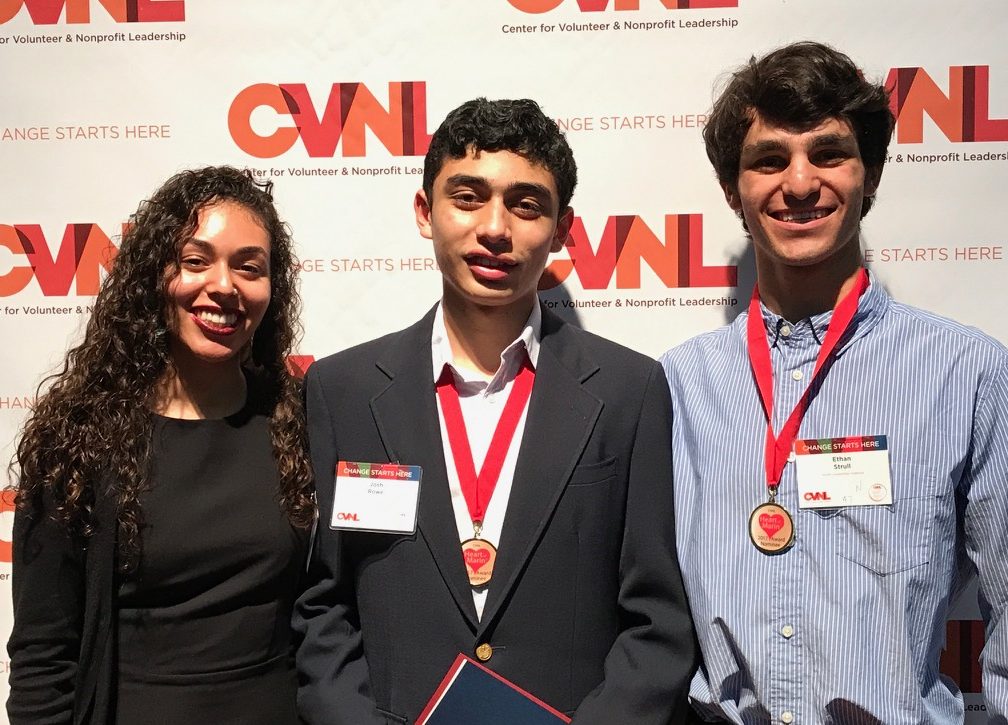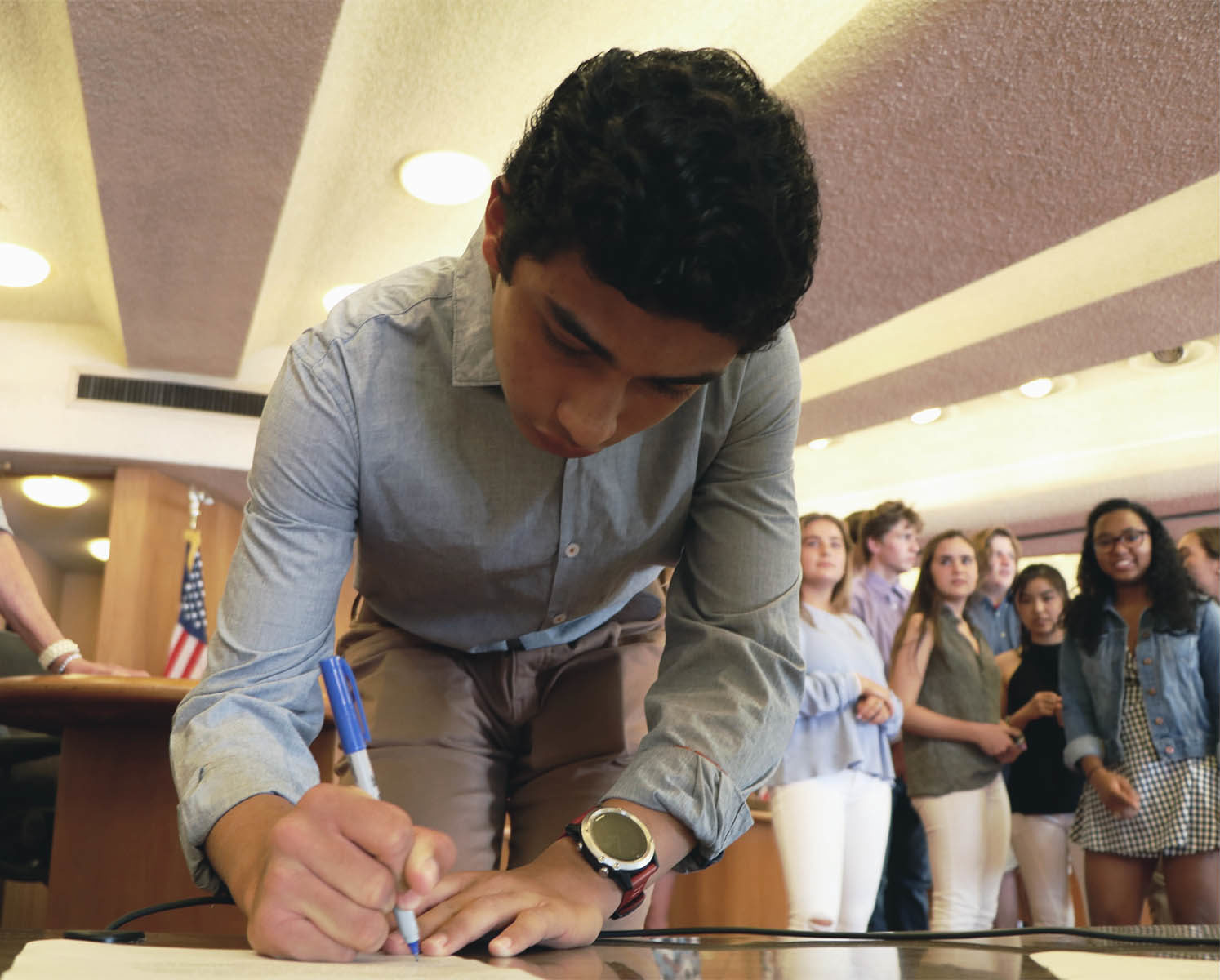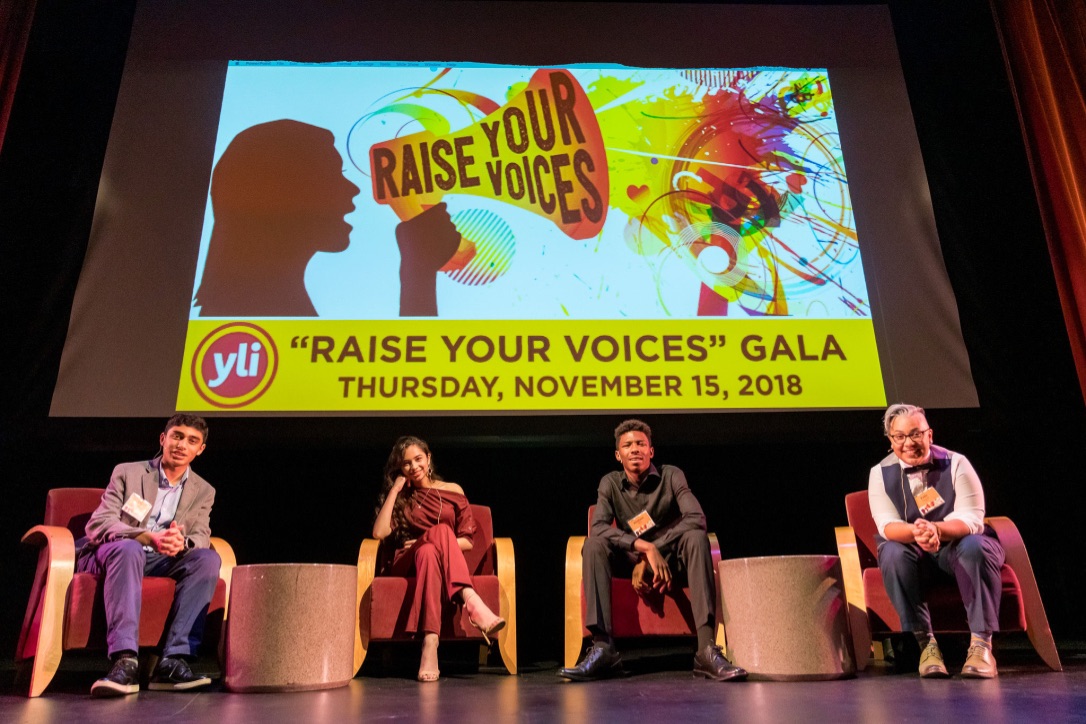
I first became interested in yli programs as a result of frustrations that I experienced in seventh grade. My tiny rural school implemented new rules restricting bike riding on campus – a trivial issue in retrospect – but one that impacted many of the 19 other students in my class. Though I was unhappy with the new regulations, my discontentment stemmed primarily from the total lack of youth input into a decision that impacted us. My dejection ended when my good friend Ruby enthusiastically told me about her participation in a yli-run program called the Marin County Youth Commission (MCYC), a cohort of young people appointed by the county government to advocate for the interests of youth constituents. I was immediately enticed by the opportunity to put myself on the same level as the adult leaders in my community, and I begin my first term during my eighth grade year.
I began my tenure as a youth commissioner by swearing an oath to protect and defend the Constitution. As I stood alongside my new colleagues and affirmed my loyalty to my state and country, I became fully conscious of the situation’s gravity – I had never made a serious commitment like this before. After the swearing-in ceremony, the returning commissioners chatted about their previous projects, like making a documentary about educational inequities that existed in Marin. This just reinforced for me how new and important this role was going to be. I was definitely one of the youngest commissioners and it took me awhile to find my voice.
Although I remained reserved for my first two years on the Commission, I eventually gained the confidence to express my character and feelings during a major campaign to reform Marin County’s youth criminal justice system. yli had brought MCYC together with a coalition of community organizations – Communities Mobilizing for Change on Alcohol – to research and address the issue of youth substance use. Our research revealed that the County’s response to youth drinking was not only ineffective, with high rates of recidivism, but it saddled youth with criminal records that could follow them throughout their lives. They also learned that it disproportionately impacted low-income youth of color who could not afford expensive legal counsel.
I was apprehensive about speaking up, but the issue was so important that I felt compelled to take the risk of becoming more visible. It was the first time I was presented with a situation in which I could see myself.
It was clear to all of us that punishing someone who is experiencing substance abuse over and over won’t solve the problem. Fortunately, one of our coalition partners, the YMCA Marin County Youth Court, had a solution: instead of funneling kids into the parole system, they recommended a restorative justice process whereby respondents would be faced with a jury of their peers. Recognizing the important role of family in addressing youth substance use, the parents of respondents would be included in the restorative plan. The Court also made an effort to connect the youth that it served with additional resources, such as counseling. A family’s income wouldn’t impact the outcome, and youth wouldn’t be strapped by a criminal record. Of course, expanding the scope of Youth Court wouldn’t solve all the problems, but it addressed many of the inequities.
Then came the hard part: convincing powerful members of our community – elected officials and government leaders – that this was a good solution. We spent months refining our exact course of action so we would all would be on the same page when we presented to our networks. Our meticulous preparation was followed by meetings with the Marin County Board of Supervisors, the County Public Health Officer, and law enforcement, among other powerful community partners. I was pleasantly surprised by how receptive government officials were to the ideas of constituents who weren’t even old enough to vote, and it was exhilarating to be working with the people in charge to make a difference.

After almost a year of late-night work sessions and stressful lobbying meetings, we finally testified before the Board of Supervisors, who passed our policy unanimously (read about it here!). I felt so honored to have had the chance to work alongside adults to influence change – and it made me realize just how critical youth voice is. We had a deeply unjust system that was impacting youth – one that, once revealed, everyone agreed was unjust – but there was no way to bring the issue to the attention of the Board of Supervisors until MCYC brought it up. There are many issues that only impact youth, so we are the only ones who can share meaningful perspectives. In this case, our solution was simple. The Youth Corp already had a great program in place. The connection just needed to be made.
After this big win, I remained on MCYC’s Alcohol, Tobacco, and Other Drug Subcommittee. We focused on e-cigarette use, and drafted an informational poster that we shared with partner organizations. It felt like a minor project in relation to our recent win, but it wouldn’t have been successful if we hadn’t built the network through our last campaign. Once again, it underscored the value of youth leadership: even though we aren’t scientists, we were able to develop a poster that would engage our peers.
In my sophomore year, yli’s CEO reached out with an offer to join yli’s board of directors. I was surprised. Until that time, I had imagined board members as old, powerful, wealthy people. I didn’t even know nonprofits had boards. But as I read the invitation, it occurred to me that youth board positions – especially at an organization like yli – made perfect sense: we’re all about youth voice, so we should have youth represented at the executive level. Needless to say, I was happy to accept yet another opportunity to have a voice.
As a yli board member, my most important responsibility is to review and approve the organization’s annual budget. I feel a special obligation to ensure that our fiscal plan aligns with the interests of youth. Another big decision that I faced as a board member was the acquisition of the youth media organization, Youthwire. I was really excited about this merger and was a strong advocate for it. In my view, there was a real need to increase the visibility of the awesome things yli youth are doing in their communities. I think that sharing my perspective reinforced the affirmative votes for the acquisition.

Now that publicizing our work is a priority, I can’t wait to see where this takes us. The videos, the publications – they are so important because it’s how the world is going to find out about issues that impact youth. I know that people are concerned about the state of education, for example, but in order to arrive at real solutions, they need to hear from the people most affected – and if youth can present their cases in a way that encourages people to support them, we can mobilize more people to help us.
One of the most important impacts that yli has had on my life is figuring out my direction. I’m fascinated with government and political science – that’s what I want to major in. I’ve taken summer classes on constitutional law, and now I’m thinking about law school so that I can continue to advocate for others. I’ve become more confident because I know my perspective is valid and important – and I’ve been privileged to have the opportunity to share it in a forum that it will be heard by other youth and by government. I am eager to continue using my leadership position to help other youth to have these opportunities so that more perspectives can be shared, so that more issues can be brought to the table.
To me, youth leadership is about organizing and inspiring others. I don’t have to be the loudest person in the room in order to be an effective leader. What matters most is bringing the voices of others to the forefront, gaining their respect, and encouraging them to share their voices so that we can enrich our communities together.
